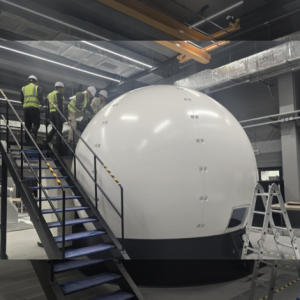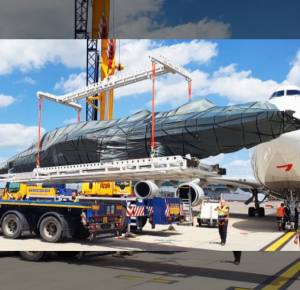
CJ Logistics announced on July 21 that it has signed a memorandum of understanding (MOU) with Kia to promote innovative eco-friendly logistics and transportation.
Through the agreement, the two companies will cooperate in converting CJ Logistics’ existing delivery fleet to eco-friendly electric trucks as well as the substantiation of advanced logistics technology. The companies will also pursue the joint development of CJ Logistics’ Purpose-built Vehicle (PBV). Through this cooperation, the companies plan to promote digital transformation, technology-based logistics innovation and a preemptive response to eco-friendly trends
PBVs are vehicles developed with a focus on utility such as cargo trucks, delivery vehicles, or commercial taxis. The PBV is built on top of a state-of-the-art skateboard platform with driver’s seat and cargo compartment and other features that are optimized for user convenience.
Accordingly, CJ Logistics will propose improvements for the convenience, safety and productivity of delivery drivers based on accumulated on-site data, while Kia will develop an optimal vehicle model that reflects these needs. For example, in the case of the Bongo EV, an electric truck which is currently being used, improvements to the driver’s seat, cargo compartment and the battery will be addressed first based on the experience of delivery drivers. Furthermore, supportive devices will be developed to increase the ease of loading and unloading.
Based on CJ Logistics’ vast data capabilities and Kia’s mobility technology, pilot projects that will lead the mobility revolution such as delivery robots, delivery-only electric devices and autonomous delivery vehicles will also be carried out.
The companies will also join together in strengthening the widespread adoption of eco-friendly electric trucks. CJ Logistics is working with Kia to convert their delivery truck fleet to electric Kia Bongo III EVs and seeking ways to secure a charging infrastructure that allows for stable charging stations. Moreover, the two companies will cooperate in developing solutions related to electric vehicle conversion and managing the life cycle of electric batteries.
Last year, CJ Logistics joined the South Korea Ministry of Environment’s “K-EV100” (100% conversion to zero-emission vehicles) initiative and has pledged to convert the company’s directly managed vehicles to 100% zero-emission vehicles by 2030.
“The eco-friendly paradigm shift has become a necessity, not a choice,” said Kang Sin-ho, CEO of CJ Logistics. “Our green logistics innovations help to pursue carbon neutrality, increasing customer satisfaction.”











